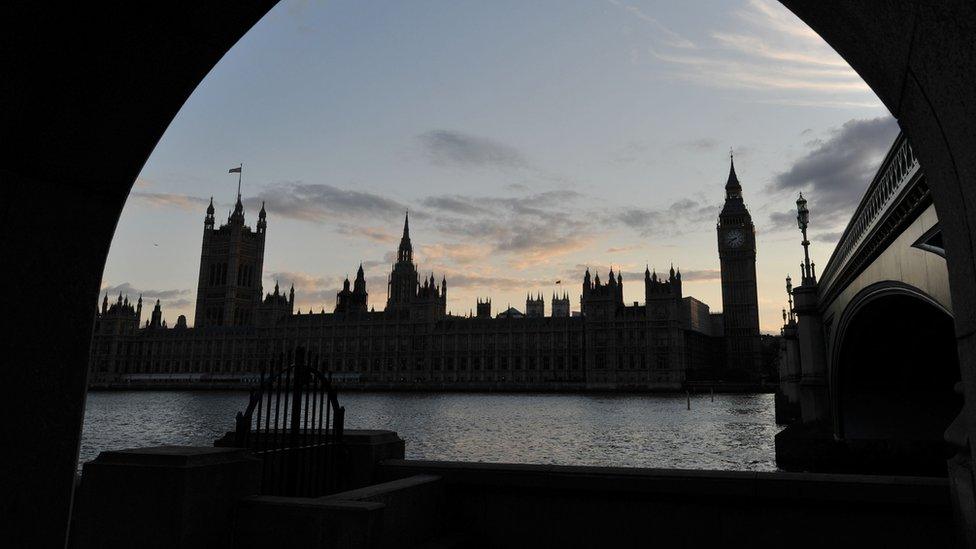On bullying and harassment
- Published

The saga of bullying and sexual harassment in Parliament is currently paused. The House of Commons is not sitting, and we are awaiting news of the remit of the inquiry into the abuse of staff. But there is one important feature about this issue which is worth bearing in mind.
In our work on this, Lucinda Day and I have tended to describe the phenomenon we reported on as "bullying and sexual harassment". Our intention was to make sure people understood what the problem, which we heard about in dozens of interviews, really was.
We used that form of words because there was a range of behaviour: we heard from clerks who were propositioned, groped, forcibly kissed and pressed against walls. We also heard from people who were subjected to workplace behaviour that was not overtly sexual: for example, barrages of requests or criticisms where each part was individually defensible but the overall effect was overwhelming.
So there are times when "bullying" is a clearer word for what happened than "sexual harassment". But I would urge you to think of these problems as two different trees from the same wood: people with power punching down at people who have no effective mechanisms of redress.
This really matters: the two issues are often separated. Understandably - they are different legal complaints. But the two sorts of behaviour could arguably be seen as manifestations of the same abusive mindset.
A common root
You can see that in who does it: MPs - and senior clerks - whose conduct appears to be a demonstration of what power they have.
Even the specific type of power-holder is the same. , Professor Jacqueline Rose noted how often harassers are not almighty: "Harassment is ruthless, but it also has a desperation about it, as if the harasser knows at some level that his cruelty, like all human cruelty, has its source in a fraudulent boast".
That is also a good description of most of Westminster's worst bullies: most are not people with a great career ahead of them - or, indeed, behind them. And it is striking how often we have heard complaints from each side of the bullying/harassment line about the same individual. Or cases that metastasised from one behaviour to the other.
The victims of the two behaviours are similar too, too. Some very serious bullying cases have afflicted men - but the victims are largely women.
Serious cases of both bullying and harassment have affected privately educated people with cut-glass accents. But we found the people who suffered abuse at the hands of multiple MPs and senior clerks were disproportionately women who were far from that mould.
The common effects of bullying and sexual harassment may be underestimated, too. In her article, Prof Rose summarises the thoughts of Vanessa Grigoriadis on sexual harassment. "The aim of harassment... isn't just to control women's bodies but also to invade their minds".
That is the point of bullying, too: we have heard repeated heartbreaking accounts of how doltish bullies have ripped into the confidence of much better people.
So it is worth remembering this when you hear bullying treated as a trivial offence - or as very distant from harassment. MPs, in particular, should consider this. Too many of them seem to think it is not the done thing to act as witnesses against other MPs in bullying cases, or - indeed - to be seen to take it as seriously sexual harassment. But workplace bullying is its closest sibling.
- Published8 March 2018
- Published14 March 2018